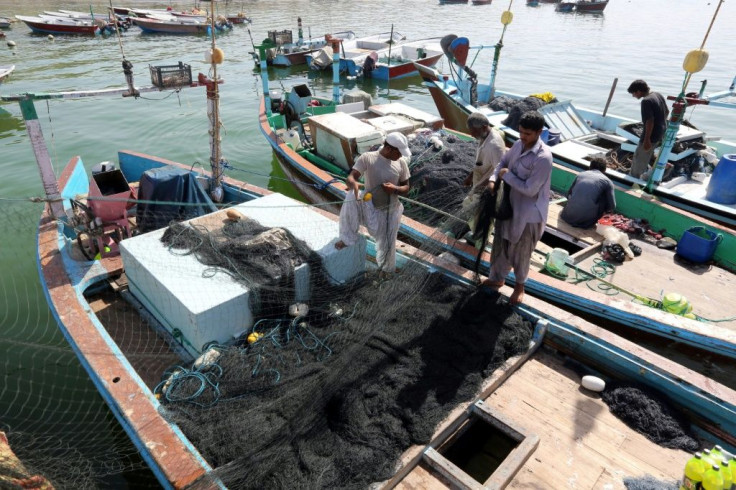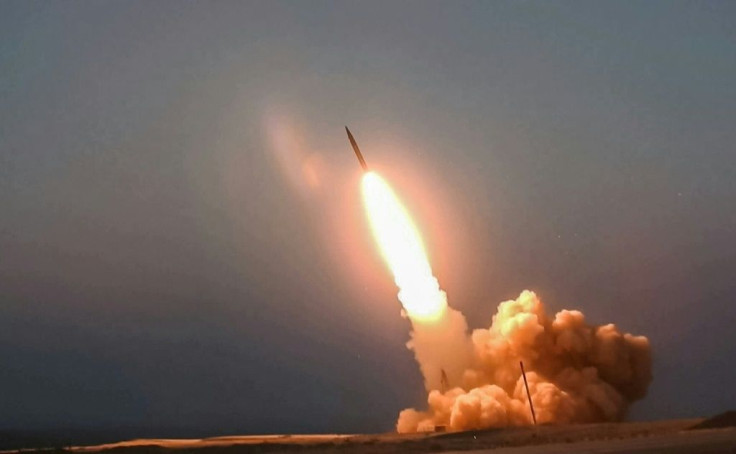Iran Says Holding UAE Boat After Fishermen Deaths
Tehran said Thursday it seized an Emirati boat following a Gulf incident in which two Iranian fishermen died, stoking tensions after the UAE said it would establish ties with Iran's arch-enemy Israel.
The Iranian foreign ministry said it also summoned the UAE charge d'affaires to protest the maritime incident, which took place on Monday.
UAE coastguard vessels had "opened fire on several Iranian fishing boats... leading to the deaths of two fishermen", a statement by the ministry said.
An "Emirati boat was seized by coast guards of the Islamic republic of Iran because it was sailing illegally in our waters, and its crew have been arrested," it added.
The official Emirati news agency WAM said eight fishing boats had violated its own territorial waters on Monday, without giving their nationality.

"The coastguard boats attempted to stop the fishing boats but they did not comply with the orders, therefore, rules of engagement were applied", WAM added.
Iran's foreign ministry said the UAE had on Wednesday expressed "its deep regret" and said it would provide compensation.
Iran and the UAE have longstanding economic links and the Emirates are home to a significant Iranian expatriate community.
But tensions have spiked between the two nations following last week's surprise announcement that the UAE has agreed to normalise ties with Israel under a US-brokered deal.
Iran condemned the agreement, with President Hassan Rouhani calling it a "big mistake" and warning "against opening the path of Israel to the region", without elaborating on what that would mean.
Rouhani's remarks were seen as "threats" by the UAE which on Sunday summoned the Iranian charge d'affaires in Abu Dhabi to protest "unacceptable and inflammatory" rhetoric.

The UAE, which downgraded its relations with Iran in 2016 amid fierce rivalry between Tehran and Emirati ally Saudi Arabia, said the remarks "had serious implications for security and stability in the Gulf region".
Establishing diplomatic ties between Israel and Washington's Middle East allies, including the oil-rich Gulf states, has been central to US President Donald Trump's regional strategy to contain Iran.
On Wednesday, Trump said the United States will activate a controversial mechanism aimed at reimposing UN sanctions on Iran known as "snapback".
This follows last week's defeat of the US at the UN Security Council where it failed to muster support for a resolution to extend a conventional arms embargo on Iran.
Tehran has been at loggerheads with Washington since 2018, when Trump unilaterally withdrew from a historic 2015 nuclear deal between Iran and world powers and reimposed US sanctions.
"Snapback" aims to restore all international sanctions against Iran that were lifted as part of the 2015 accord with Tehran.
Iran denies developing nuclear weapons.
But on Thursday, in apparent defiance of Washington, Tehran unveiled two missiles it said had an extended range, naming them after commanders killed in a US strike in January in Iraq.
One of them, unveiled as a ballistic missile, was called "Haj Qasem" in honour of top Iranian general Qasem Soleimani, while the other, a cruise missile, was named after his Iraqi lieutenant Abu Mahdi al-Muhandis.
© Copyright AFP 2024. All rights reserved.





















